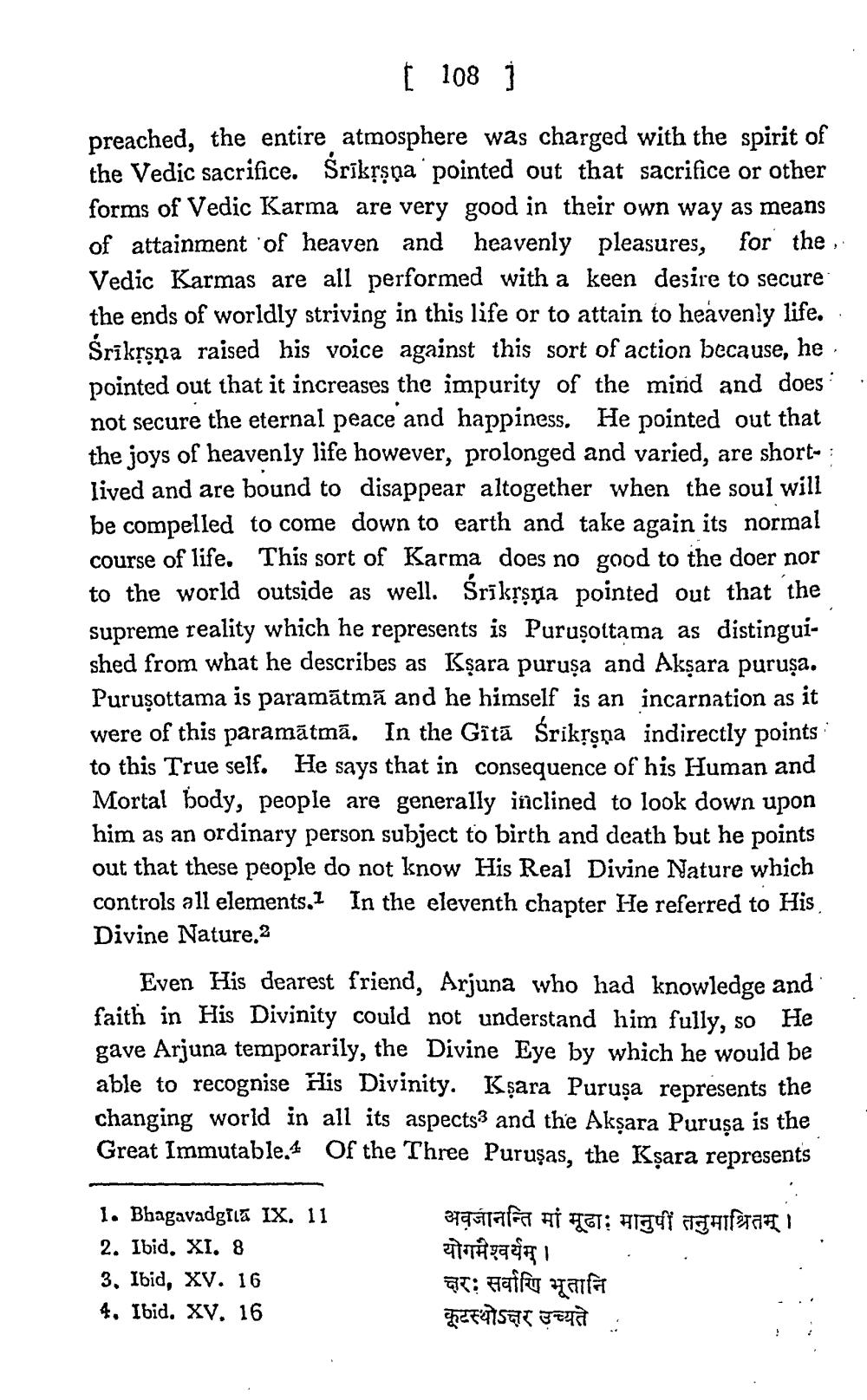________________
[
108
j.
:
preached, the entire atmosphere was charged with the spirit of the Vedic sacrifice. Srīkļşņa pointed out that sacrifice or other forms of Vedic Karma are very good in their own way as means of attainment of heaven and heavenly pleasures, for the , Vedic Karmas are all performed with a keen desire to secure the ends of worldly striving in this life or to attain to heavenly life. Srīkņşņa raised his voice against this sort of action because, he pointed out that it increases the impurity of the mind and does not secure the eternal peace and happiness. He pointed out that the joys of heavenly life however, prolonged and varied, are shortlived and are bound to disappear altogether when the soul will be compelled to come down to earth and take again its normal course of life. This sort of Karma does no good to the doer nor to the world outside as well. Śrīkļşña pointed out that the supreme reality which he represents is Purusottama as distinguished from what he describes as Kşara puruşa and Aksara puruşa. Purusottama is paramātmā and he himself is an incarnation as it were of this paramātmā. In the Gitā Srikțşņa indirectly points to this True self. He says that in consequence of his Human and Mortal body, people are generally iiclined to look down upon him as an ordinary person subject to birth and death but he points out that these people do not know His Real Divine Nature which controls all elements. In the eleventh chapter He referred to His, Divine Nature.2
Even His dearest friend, Arjuna who had knowledge and faith in His Divinity could not understand him fully, so He gave Arjuna temporarily, the Divine Eye by which he would be able to recognise His Divinity. Ksara Puruşa represents the changing world in all its aspects; and the Akşara Puruşa is the Great Immutable. Of the Three Puruşas, the Kșara represents
1. Bhagavadgila IX. 11 2. Ibid. XI. 8 3. Ibid, XV. 16 4. Ibid. XV. 16
अवजानन्ति मां मूढाः मानुषी तनुमाश्रितम् ।। योगमेश्वर्यम् । क्षरः सर्वाणि भूतानि कूटस्थोऽक्षर उच्यते ।




